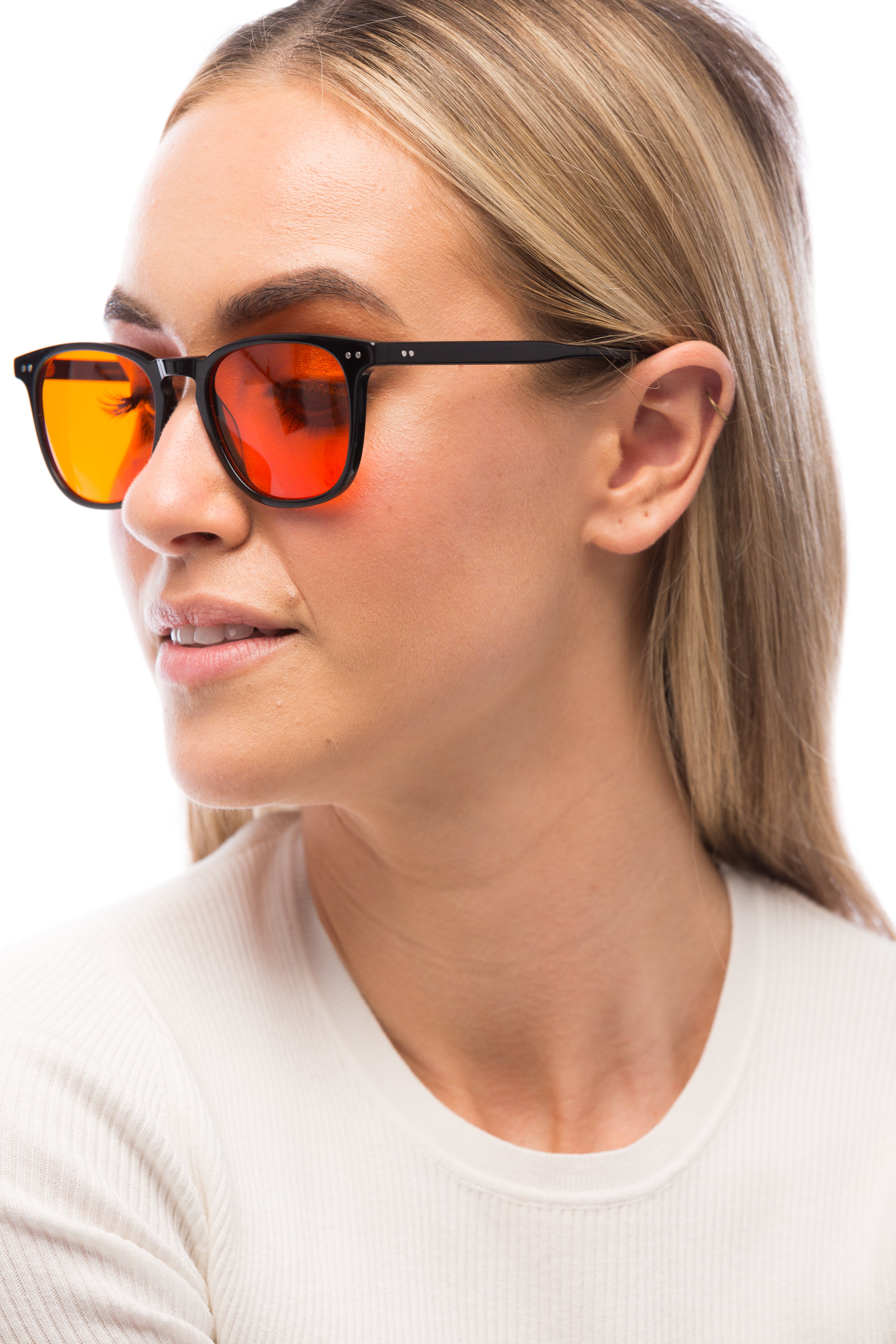Which blue light blocking glasses are best?
Andy Mant
There are so many different brands of blue light blocking glasses to choose from but how do we know which are the best? There are so many brands out there that buy their glasses in bulk from factories in China with no regards to what frequencies of light they should be blocking or filtering.
Many companies also mislabel their products calling computer glasses blue blockers, which only confuses people more when they try to make the best decision.
The short article will talk you through what to look for and watch out for when looking to buy a pair of blue light glasses.
Computer Glasses vs Blue Light Blocking Glasses
Firstly, let’s get this straight up out there, clear glasses (glasses with clear lenses) do not block blue light. They are not blue blockers, period. To block blue light, you need a coloured lens, typically amber or red. Computer glasses, with clear lenses are not going to help you sleep.
Today, many companies are trying to jump on the eCommerce bandwagon and trend of blue light and sell you computer glasses as blue blocker glasses. They also suggest that their glasses will improve sleep, whilst the science in peer reviewed academic literature tells us otherwise.
Don’t get me wrong, there is always a place for computer glasses or clear glasses that block blue light, but one of their attributes is not blocking blue light or helping you sleep.
Computer Glasses Buying Guide
Computer glasses, aka clear glasses, aka anti glare glasses and definitely not blue blockers, are taking the world by storm. These glasses filter (not block) blue light during the day. They are used for someone that does not have a sensitively to blue light but works in an office all day under artificial light. The light can be from office lighting, computers, smart phones and personal computers. These devices have a lot of blue light present. Ever get dry, sore or itchy eyes after using your computer? Well that is called digital eyestrain and may be caused by too much blue light damaging our eye's cells during the day and not enough restorative red light repairing the damage.
The best computer glasses will focus on reducing the blue light spike found in LEDs, most computer glasses companies focus on reducing blue/violet light from 380-420nm. You can see why focussing on blue/violet light (between 380-420nm) is an issue right? Its not present in LEDs, so they aren’t blocking any artificial light… hmmmm!
When looking for a pair of anti fatigue glasses or computer glasses one must ensure they are filtering down light in the blue range from at least 430-495nm.
Check List for Buying the Best Computer Glasses
- Ensure they filter blue light between 430-495nm. Ask for a spectral test report to prove this from the company you choose
- Avoid computer glasses that have the light pen gimmick.
- Ensure they are made under laboratory conditions, not a factory to ensure top quality
- Avoid clear glasses that focus only on violet light
Blue Light Blocking Glasses Buyers Guide
What are the best blue light glasses? The best blue light blocking glasses are those that block 100% of blue light right? Well its semi right. Peer reviewed evidence states that the best blue light blocking glasses must block 100% of the light that falls between 400-550nm. This is all blue light and most green light.

Typically, a good pair of Blue Light Blocking Glasses will be red glasses, glasses with red lenses that completely eradicate blue/green light between 400-550nm. If they do not achieve this then save your money as you want be optimising your light hygiene post sunset and be leaving quality sleep on the table.
Finding the balance is key, less than 550nm blocked might not be enough but also blocking too much green post 550nm may be unnecessary. Glasses that block blue light are becoming more common but make sure before you commit to a pair that the science behind their claims backs up.
Check List for Buying the Best Blue Light Blocking Glasses
- Ensure both blue and green light between 400-550nm is blocked. Ensure claims are backed up with a spectral analysis report
- More is not always better. Brands that focus on blocking post 550nm may not be necessary.
- Ensure the lenses are made in a laboratory to ensure best clarity and quality. Avoid factory produced lenses.
Yellow Tinted Glasses
But wait, there’s another option? Just when you thought you had yourself covered we throw in another curve ball! Yellow tinted glasses or as they are sometimes referred to light sensitivity glasses, are another form of day time blue light glasses. If you have a sensitivity to bright light you may need to reduce more blue light than what regular computer glasses would do. This is why yellow tinted glasses are now gaining popularity. They provide people with light sensitivity issues and serious biohackers that chance to manage artificial light better. They do everything the best computer glasses do and more. Some, like BON CHARGE Light Sensitivity Glasses lenses are a great option.
Yellow Tinted Glasses Buying Guide
- Ensure the lower end of the blue spectrum is blocked, 100% between 415-455nm seems best
- Ensure yellow lenses are made in labs, not in factories
- Ask for a spectrum report from the company you are buying your glasses from.
Final Words
Be careful when buying blue light glasses or computer glasses. A lot of companies just want your money. No one company is bad but as long as they can produce the science to back up what they are saying and it aligns with what we have published in this article then you are good to go. This article is not intended to persuade you to buy BON CHARGE glasses, it is simply an article of what to look for when you opt to upgrade your light hygiene through buying a good quality set of blue light glasses.
A great independent review of the best blue light blocking glasses can be found here



